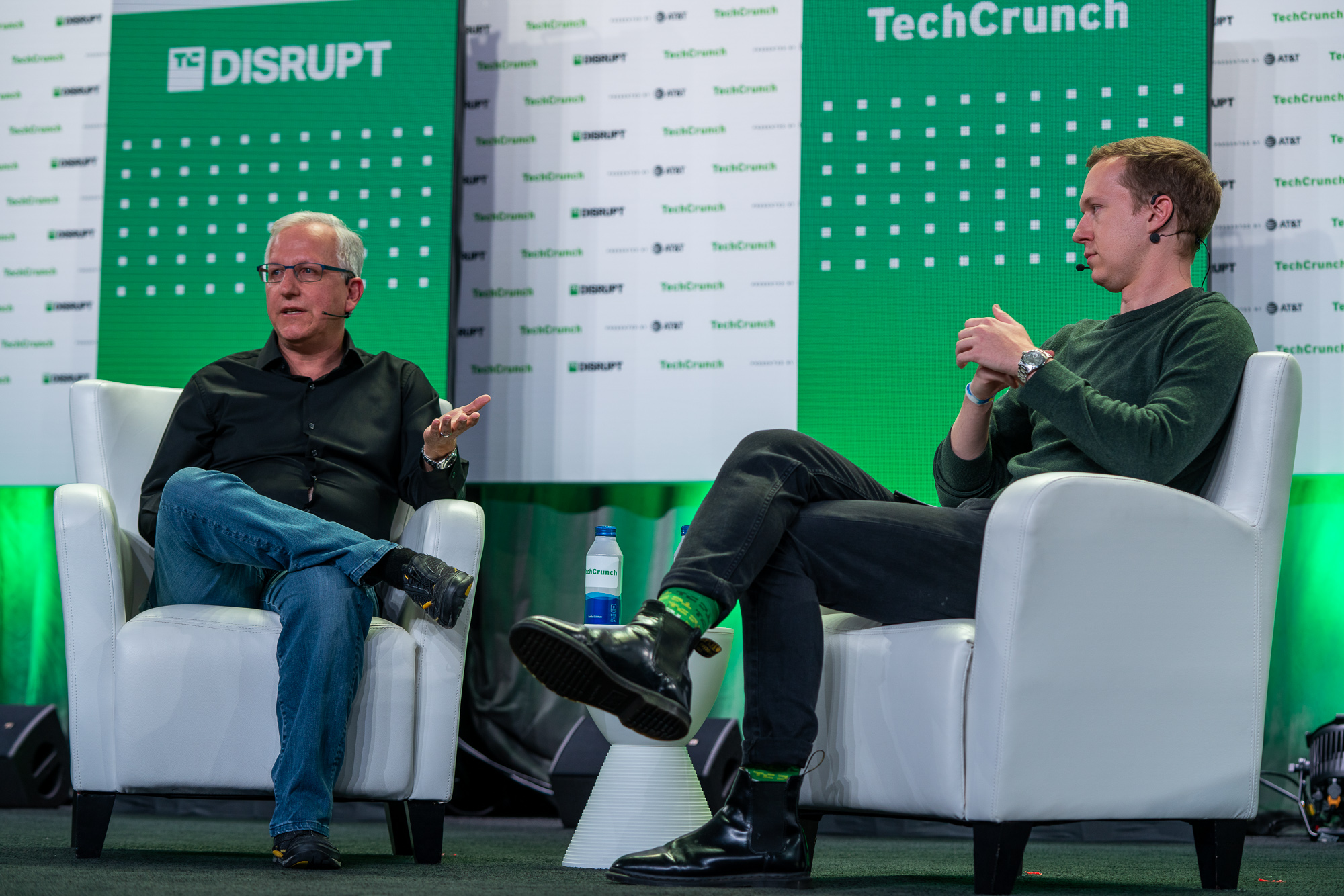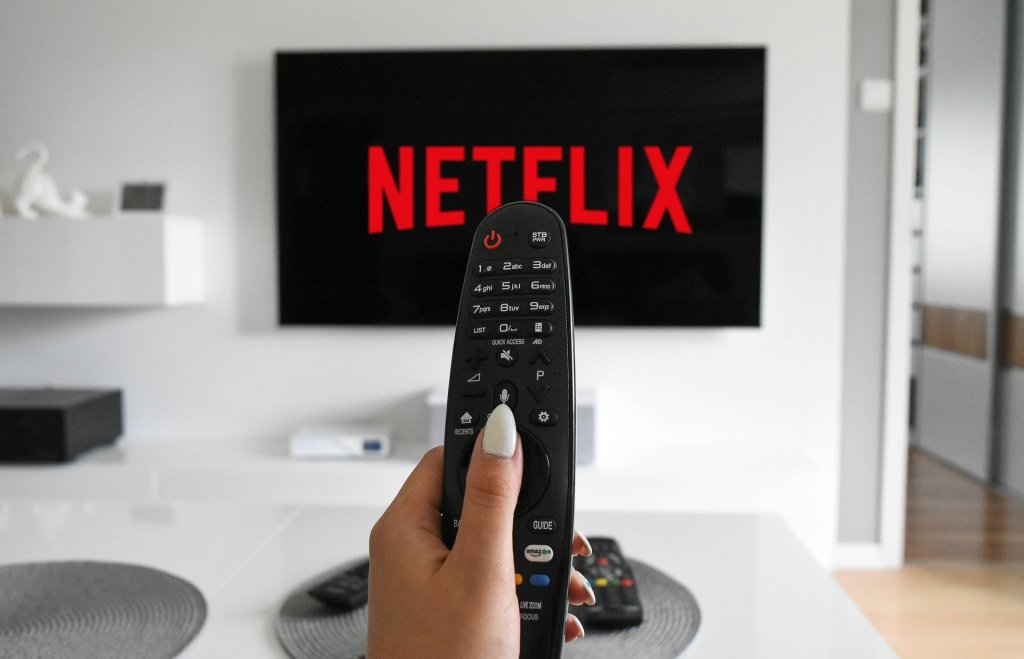“Usually the best way to figure out if your crazy idea is any good is simply to try it. So that’s what we did,” Marc Randolph, Netflix’s co-founder and original CEO,
That crazy idea was to send a CD through the mail to learn whether the concept of a mail-order DVD subscription service was practical. The CD, sent by USPS in a greeting card envelope, arrived safely the next day. The proof of operating concept for Netflix was confirmed.
This week, 16 years after its reinvention as a streaming company, Netflix announced that it’s shuttering its mail-order DVDs business. But how did it go from sending that one CD to becoming the juggernaut that it is today? Let’s take a look.
“All I knew was that I wanted to start my own company and sell things on the internet. That was it,” Randolph wrote on Twitter.
Reed Hastings met Marc Randolph when they ended up working together at Pure Software after an acquisition. That resulted in them sharing an office and a car ride to and from work each day. Ready for a new challenge, Hastings and Randolph began to bounce ideas for new companies off of each other.
The ideas were many and varied and included personalized shampoo (!), personalized dog food (!!) and selling vitamins online. All of these products now exist, but at the time the duo dismissed them as not being feasible.
Another idea that wasn’t feasible was taking on Blockbuster by shipping VHS tapes, which were too big and bulky to be shipped via regular mail, and FedEx was going to eat into the profit margins something awful. Then something happened: Digital versatile discs, or DVDs, came along. They were much smaller and thinner than their VHS counterparts, and this technology innovation unlocked a new form of video rentals. Incidentally, once the internet became fast and ubiquitous enough, streaming would become possible, too, giving birth to the Netflix we know today, but I’m getting slightly ahead of myself.
Hastings dismissed shipping VHS tapes because of their size. Several weeks after they discarded the ideas, Hastings heard about DVDs. Something small, flat and lightweight? That could work!
But, there was something truly bonkers about Netflix basing its business model on DVDs. DVDs had barely been invented yet. Hastings had heard of DVDs as a new storage technology, but they weren’t yet widely available and they couldn’t find anywhere to buy one.
They were taking a chance on DVDs being the information delivery medium that would rise to the top. What if they hadn’t? What if they’d gone with VHS or LaserDisc? Would that have spelled the demise of Netflix, or would it have managed to pivot to an alternative gracefully?
“I can point to hundreds of other forks in the road that may have made the difference between success and failure,” said Randolph, stressing how much luck they had in founding Netflix. “Each of them reminds me of the importance that luck plays in every success story.”
Sure, it takes a little bit of luck, but over the years, Netflix has shown plenty of good judgment, too.

The beginning
On April 14, 1998, from a tiny office in Scotts Valley, California, Eric Meyer, the VP of engineering, pressed a button that pushed Netflix live into the world. The servers crashed almost immediately, and the company ran out of labels. But by the end of the day, Netflix had 200 customers. Today, Netflix has over 200 million customers, in almost every country in the world. That’s one heck of a ride, even without knocking back Amazon or being rejected by Blockbuster. And you guessed it, they, too, are part of the Netflix story.
Later in 1998, Jeff Bezos and Amazon CFO Joy Covey called a meeting with Hastings and Randolph. This was back when Amazon was still all about books (remember when Amazon was a bookstore?) but knew that the next step would be music and movies. Amazon was interested, to the tune of $15 million. Given that Netflix was so young, that was a healthy offer, but for Hastings and Randolph, there was more to do. They hadn’t taken Netflix far enough to let it go yet. So they chose not to sell the company. Again, a shrewd move; as I’m writing this, Netflix is worth $140 billion or so.
Randolph took his first job out of college at Cherry Lane Music Company in New York, where he was placed in charge of the mail-order sheet music operation. He moved on to MacUser and later with Peter Godfrey founded MacWarehouse and MicroWarehouse — two online computer stores — in 1987. They went public in 1992. All of this experience impressed on him the importance of next-day delivery, which became a fundamental principle of Netflix. Who wants to wait to watch a movie? In today’s parlance: Imagine if your next episode of “Better Call Saul” was buffering for a whole day before you could watch it!
The company very quickly started leveraging the big data aspect of the internet. The team started using the Netflix website to act as a market research platform as well as an online catalog. From this, Netflix was able to build Cinematch, which directed users toward movies it calculated they would like based on their searches and preferences and away from new releases. It was one way to ensure it always had DVDs for their subscribers and maintain customer satisfaction.
Blockbuster comes sniffing
Back in the 2000s, I was a dedicated Netflix subscriber. There was a lot to love about it: being able to queue up films that I wanted to see and to shuffle the order in which they’d be sent to me depending on what I fancied watching most. Even better, though? There were no return dates, so if I managed to temporarily lose a DVD under a pile of magazines, I wouldn’t be charged a late fee for it. By its own admission, Netflix was late to catch on to no loan periods or late fees; this policy was introduced in early 2000.
Was the late fee the great undoing of video rental store Blockbuster? Well, that might have had something to do with it, but it could all have gone very differently. There was a point in 2000 when Netflix might easily have gone under when the dot-com bubble burst. As Randolph puts it, the dot-com at the end of Netflix’s name became something of a scarlet letter as opposed to a badge of honor, and he and Hastings were looking to sell to avert bankruptcy. The stock price plummeted to almost nothing. Netflix’s preferred buyer? Blockbuster.
At the time, Blockbuster had 60,000 employees and 9,000 stores. It was the name in video rentals. Under Hastings’ and Randolph’s proposal, Blockbuster would pay $50 million for a 49% stake in Netflix. Netflix would become Blockbuster.com and run the online business, with Blockbuster running the stores. And everyone would live happily ever after.
Blockbuster made what might have been its worst decision in the history of the company and snubbed the offer. It took Blockbuster until 2004 to establish an online offering, and by then, Netflix had weathered the storm: By 2005, it had 4.2 million subscribers. And Blockbuster? Its 9,000 stores have now been reduced to a single one.
Self-disruption
By 2002, Randolph felt that he had gone as far as he could with Netflix; Hastings stayed on. Under Hastings, Netflix continued to grow and evolve. In 2007, when DVDs were still very definitely a thing and everyone was comfortable feeding them into their optical drives or DVD players, Netflix recognized that sending them through the mail wouldn’t be the optimal viewing experience forever. The way ahead was digital downloads and streaming. Not everyone at the time had connection speeds that could stand up to a full-length movie, but Netflix realized that internet speeds and availability were only going to go one direction. It seemed that Netflix was onto something.
Between 2007 and now, the company has continued to innovate. One of its big pushes was toward new content. International licensing agreements for all the content was an utter mess, so the streaming company decided to start getting into original content. That came with two benefits: the ability to create content that nobody else could or wanted to, and the chance to draw up contracts that included global streaming rights. In 2013, it released “House of Cards,” its first in-house production. I’m in the process of rewatching it now, and while some things really don’t stand the test of time (including, perhaps, casting Kevin Spacey), in many ways it’s a thoroughly innovative TV show that pushes the boundaries on many fronts. Netflix followed up with a ton of other successes, some rather niche, while others went mainstream.
The company’s current edge of experimentation appears to be interactive content, like “Bandersnatch,” as well as mobile games.
In the past year, Netflix has seen some waves of layoffs (first 150, then 300 more), and a re-org of its original content studio, which the company says means it is planning to make fewer — but better — original movies.
The company has a long history of being absolutely brutal to work for but also being laser-focused at building a better company at every step. It’ll be interesting to see where the company goes next, and what new technologies and business models Netflix can use to springboard it through the next 25 years of its existence.































Comment